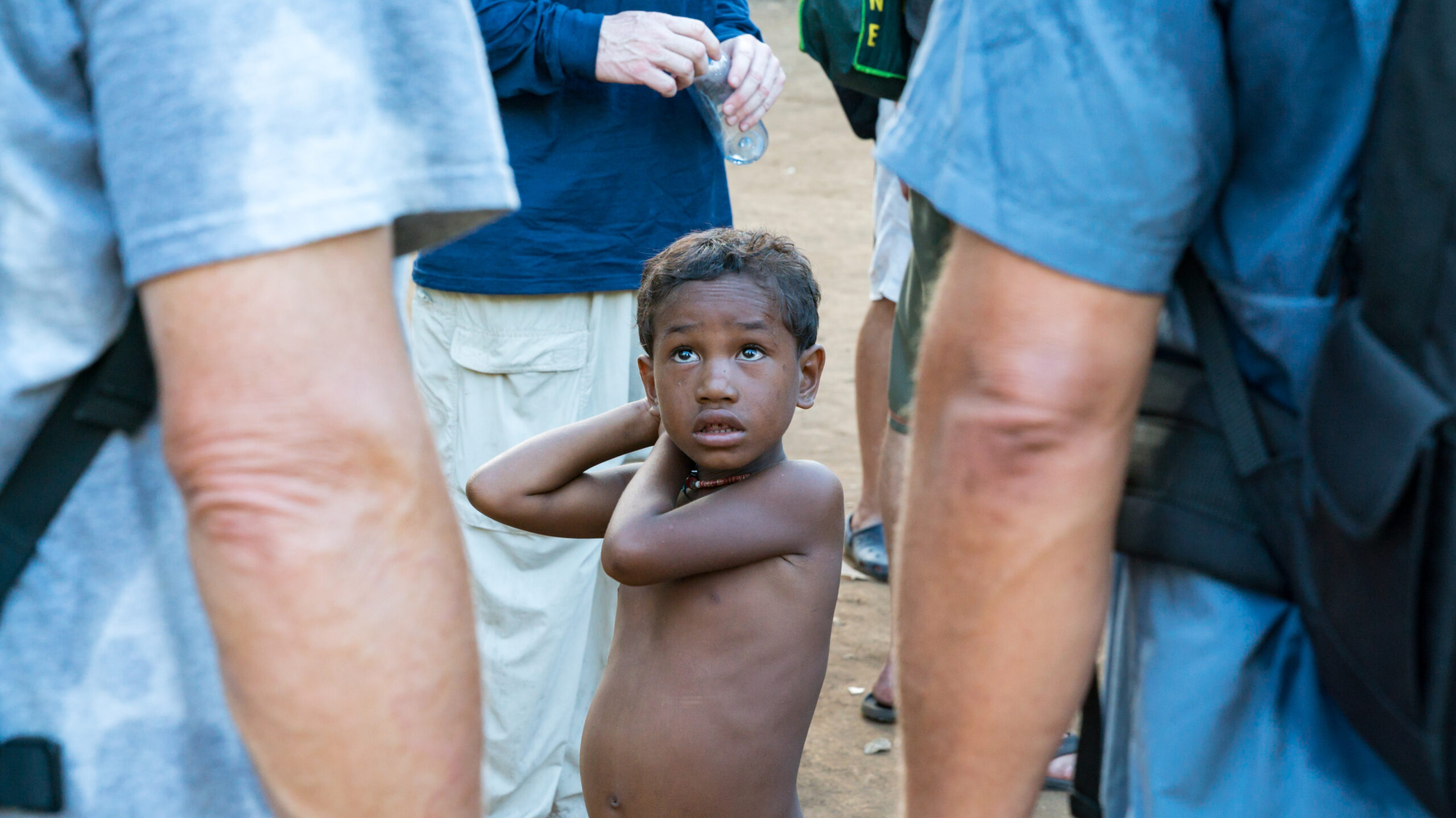How Religious and Charitable Humanitarian Efforts Destroy Economies and Perpetuate Poverty and Terrorism Throughout the World
September 3, 2015 |
| 14 min read

Poverty and inequality still exist in our world because the means and ways that have been attempted to eliminate them are flawed and cause more problems than good. As poverty and desperation increase daily, humanitarian efforts increase exponentially. Symmetrically, as humanitarian efforts increase, poverty increases. Not one humanitarian effort has ever been responsible for eliminating poverty and inequality among the people to whom the effort was/is directed.
No one has the courage to stand up to the religions and charities of the earth that purport to help the poor and needy and tell them that they are part of the problem. But common sense and logic scream:
Because poverty continues to increase throughout the world daily, the way that the poor are being helped doesn’t work and obviously adds to the problem.
In fact, religious and charitable organizations make things much worse for the people.
In the wake of some of the largest and most significant humanitarian efforts ever attempted, economies were left devastated, people were left more hopeless than they were before the event that caused the problem in the first place, and terrorism increased proportionately to the amount and type of humanitarian aid given to the people.
THumP® has the courage to bring the issue out in the open, confront it, explain it, and then offer the right solutions. Sadly, THumP®’s solutions, although brazen, innovative, logical and unchallengeable, will be fought, not with logic, but with ignorant emotion from those who support the religious and charitable organizations throughout the world.
One of the most prominent religious organizations, and ironically, the wealthiest church, per capita, in the entire world, the Church of Jesus Christ of Latter-day Saints (“LDS/Mormon”), promotes its values and ideologies to the world through humanitarian aid. Owing to the fact that Mitt Romney, an LDS/Mormon, almost became the President of the United States, we thought it appropriate to use his religion as our example of how religious and charitable (non-government) humanitarian efforts do more harm than good. Romney’s conservative ideologies are a direct result of his religious affiliation, and many, many LDS/Mormons espouse the same political beliefs.
Although we are using the LDS/Mormon Church as our example, every other religious and charitable organization could be used for the same purpose. But because of the LDS/Mormon Church’s worldwide effort to convert people to its faith, it has become prominently known for its humanitarian efforts; and therefore, can be used to exemplify what all other similar organizations do.
The conservative attitude among the LDS/Mormons, added to their belief that their religion is the only true church upon Earth, and that their Prophet is the only person on Earth who speaks with God for the sake of the people of the earth, causes its members to fight social movements set up to do good, judging them “to be of the devil,” when what the LDS/Mormon people promote and judge to be “that which is good and of God,” is actually “evil,” in that it causes more misery and tribulation than it does good. LDS/Mormon scripture warns them of misjudging something to be good when it is actually bad, and not supporting something that they think is evil, when it is actually good.
“Wherefore, take heed, my beloved brethren, that ye do not judge that which is evil to be of God, or that which is good and of God to be of the devil.” (Book of Mormon, Moroni 7:14)
Here is the LDS/Mormon synopsis of its efforts: The following overview closely reflects many conservative ideologies supporting privately funded (non-government involvement) religious and charitable humanitarian efforts:
STEP 1
Receive funds dedicated to humanitarian aid efforts.
OUR FUNDING:
- Comes from normal, everyday people who are members of our Church and others, not from government grants or large corporate donations.
- Supports only humanitarian work—100 percent of the funds go toward project expenses.
- Doesn’t have to cover overhead costs, as they are paid fully by our Church.
STEP 2
Develop projects that align with our mission.
OUR MISSION:
- Serve all races, nationalities, and religions.
- Help others as God would have us do.
- Promote volunteerism.
- Relieve suffering.
- Support programs that meet specific needs and encourage self-reliance and sustainability.
- Encourage beneficiaries to participate.
STEP 3
Identify local partners who align with our mission and implement successful projects.
OUR PARTNERS:
- Organizations of all sizes, from global NGOs (non-governmental organizations) and government ministries to local nonprofits.
- Local organizations that know the unique needs of the communities they serve and can develop local solutions.
- Organizations whose mission and values align with ours.
- Organizations that have a proven history of completing successful projects.
STEP 4
Engage our volunteer network to support partners and beneficiaries when possible.
OUR VOLUNTEERS:
- Come from a global network.
- Mostly live in the communities we serve, reducing the time and costs required to meet changing needs.
- Fit within an established framework of local leadership that provides direction and a coordinated response.
Here is a list of some of the countries (from the official LDS/Mormon website) that this church has helped, some referenced by the natural disaster that occurred resulting in the need for aid:
LDS CHARITIES PROVIDES COATS TO REFUGEES IN GAZA
TECHNICAL SPECIALIST PROVIDES SURGICAL TRAINING TO EYE CARE SPECIALISTS IN TBILISI, GEORGIA
LDS CHARITIES VISITS VISION PARTNER IN INDIA
GHANA NATIONAL DIABETES CAMPAIGN
NEPAL EARTHQUAKE RESPONSE
CYCLONE PAM ON THE ISLANDS OF VANUATU AND TUVALU
LDS CHARITIES RESPONDS TO CYCLONE PAM
SOUTH SUDAN REFUGEE RESPONSE
LDS CHARITIES SENDS HELP DURING WEST AFRICA EBOLA CRISIS
LDS CHARITIES’ RESPONSE TO FIRE IN CHILE
HAITIAN EARTHQUAKE
Now to the facts,
Gaza, Georgia, India, Ghana, Nepal, the Islands of the South Pacific, Sudan, many countries in Africa, Chile, and Haiti continue to remain as some of THE MOST IMPOVERISHED NATIONS UPON EARTH! The people of these countries suffer daily from all forms of poverty, and include some of the areas of the world where terrorism is increasing daily.
We will use one example to demonstrate the devastation that the LDS/Mormon charities have perpetuated and continue to perpetuate: “Providing Coats To Refugees in Gaza.”
(Again, this is one of many, many examples. To understand THumP®’s point, “coats” could be properly interchanged with “food,” “medicine,” “clothes,” or any other product or service provided through humanitarian efforts; and the “LDS/Mormon Church” could be properly interchanged with any other religious or charitable organization.)
Think of a person living in Gaza. Gaza has one of the worst economies in the world. But a man named, Ahmad, supports his family by owing a small business that sells new coats or repairs old coats. For his business, which is very modest, but sufficient for the needs of his family, Ahmad had established the infrastructure and distribution means that provided him with the coats that he sold to the people of Gaza. But after the LDS/Mormons came to his country and began to give out coats for free, Ahmad, lost his business, and the infrastructure distribution chain that brought coats into Gaza disappeared.
Ahmad was devastated. He lost his only means of income to support himself and his family. Also, Gaza lost an inroad distribution infrastructure that was set up to provide coats to Gaza citizens.
Ahmad’s son, Jamel, was sixteen years old and had been attending daily meetings in the local Mosque that are presided over by the promoters and leaders of Hamas, a territorial group that has been designated a “terrorist organization” by many other nations. While his father had an income that provided for his family one day, then, an unknown non-Muslim religious group, the LDS/Mormons, took away his father’s only source of income.
“Hamas is right in everything that its has been saying and promoting about the evil Western countries,” thinks Jamel. Now Jamel has sufficient empirical evidence to give his devotion and support to Hamas as they fight the “Empirical Satan” that has destroyed his life and the life of his entire family.
Jamel would have taken over his father’s business and taken care of himself and his family through the company that his father had created. But not now. He has no hope.
The coats provided by the LDS/Mormon Church were distributed among the people. Black market factions soon had possession of many of the donated coats and began to sell them to the people. Since the distribution network of bringing coats into Gaza was disrupted, the local economy felt the impact. Eventually, there were no coats available for the people and the means and ways to get them through legitimate businesses were gone.
But what would have happened if the LDS/Mormon Church gave cash directly to the people of Gaza for a coat; or rather, a voucher for a coat that was redeemable in cash? There would have been a line at Ahmad’s coat store waiting to redeem their voucher for a coat. Ahmad would have had to hire more people to support his business; and most importantly there would be no way that Jamel could have supported the justifications used by Hamas to spread terrorism.
Again, the LDS/Mormon Church and its example of providing coats to the people of Gaza is ONLY ONE example of thousands of other groups setup, ostensibly, to help people.
“Gaza, Georgia, India, Ghana, Nepal, the Islands of the South Pacific, Sudan, many countries in Africa, Chile, and Haiti continue to remain as some of THE MOST IMPOVERISHED NATIONS UPON EARTH! The people of these countries suffer daily from all forms of poverty, and include some of the areas of the world where terrorism is increasing daily.”
Doctors Without Borders (Medecins Sans Frontieres) is an organization that touts itself as a “good” thing, when it causes many more problems for the people than the good that it does. Here’s how:
Using a hypothetical example, there are 10,000 people who need urgent care, but DWB can only treat 1,000 of them (and this number of treated people is much higher than DWB has ever actually treated at one time, in the same needy area.) How do the other 9,000 people feel when they don’t receive the care that they need? The hope that the people have to be selected for medical treatment is greatly affected (negatively) when the people realize that great majority of them will never receive treatment. And in a rush to stand in a crowded line or apply for the free medical attention, how many neighbors and friends were turned into enemies?
The hundreds of thousands of people who did not receive treatment and died are not consider when organizations like DWB tout their humanitarian efforts. The aggregated emotional and economic devastation, coupled with the day-to-day presence of economic insecurity, destabilizes needy countries.
How do the local people feel about the majority not receiving any help? Many young, disenfranchised men, with no jobs and no real opportunity, see the hypocrisy and desperate state in which they find themselves, and are easy prey to the recruiting techniques and propaganda of local terrorist groups.
The amount of money donated to DWB could pay for the college education, including medical school, of 1000 Africans, who want and need education and a good job, who in turn would live among their people and offer consistent medical attention, but only IF THEIR PEOPLE HAD THE MONEY AND MEANS TO PAY THEM FOR THEIR SERVICES.
What appears to be good and humane service has perpetuated poverty, inequality, and continual hopelessness; and will continue to do so, as it has always done, unless a completely different approach is taken. Unless an organization intends on setting up shop and providing continual humanitarian aid to the people it is trying to help, when it has done all it can, and it leaves, the perceived good becomes the evil reality that nothing was done to solve the problem.
Only a strong and properly established government that is in place to support a sound economic infrastructure can cure poverty. Without the proper government in place, the people have no hope to transition from poverty into prosperity.
The few people who donate to charities and support religious humanitarian services feel good that they have donated and supported what they perceive to be a righteous cause. But none of them take the time to follow their donation and see what it does and the effect that it has on the daily lives of the people.
We have used a religious example in our treatise to prove THumP®’s point. Unfortunately for this world, religious affiliation and belief is the greatest detriment to finally solving poverty and inequality.
Why are people so polarized and apathetic about poverty, most believing that there is nothing that can be done to solve the problems?
First, because no one has presented a plan that will work.
Here is THumP®’s plan:
Working with the World Bank and the International Monetary Fund, as well as the most prominent political and financial countries in the world, we provide each needy human being with a Debit Card (HumanECard®) that can only be used for the purchase of the basic necessities of life: nutritious food, basic clothing, housing and its maintenance and its required utilities, health/mental care, and education. We put the means in the hands of the needy people, NOT in the hands of their government.
A government will respond to the increase in the people’s ability to pay for things by providing opportunities and an infrastructure that will take the money from the people. The government leaders want to become rich. They want to take the money from the people. To get the people’s money, the government will have to provide the goods and services for which the people’s money, in the form of controlled Debit Cards, can be exchanged.
For example, the people of Ghana each have a Debit Card that they will use to pay for healthcare. But there are not enough hospitals and doctors readily available to meet the needs of the people, although the people have the money to pay for the services. Enter Capitalism and greed.
A Capitalistic society, such as the United States, with corporations with the means, knowledge, and ability to build and manage hospitals and healthcare facilities, realize how much money they can get from the people of Ghana by going to Ghana and setting up a for-profit medical infrastructure. However, they realize, logically, that the area is not secure and safe for them to establish a business. Amway (America’s Way) Medical knows how it can make millions off of the Ghana people. They promote the need for a strong security force that will protect their company. They incorporate the price of the security force into the amount that they will have to charge the people for medical services. The Ghana government has an army that it would gladly provide for security services, if the price is right.
The need for police officers, soldiers, builders, laborers, everything that Amway Medical will need to establish a business would contagiously affect the local economy and open up literally thousands of jobs to the local people. And since the local people receive free medical care with their Debit Cards, with a job and a paycheck, they can use the money that they earn to buy a television and pay for the electricity that the TV would use.
The solution is simple. The economic powers of the world can create the money needed to fund these projects and legally control inflation to regulate the flow of new money.
But why, why, why would the people of Earth not recognize and support such an easy solution to the problem of poverty?
The answer: emotional apathy caused by the institutions and theologies that add to their apathy and lack of resolve to solve the problem, i.e., religious belief.
Nothing should be more important to a moral people than helping those who are suffering. But there is an overwhelming prejudice that exists among the people of the earth that stifle their humanity and cause them to promote something that is evil as good, and something that is good as evil.


